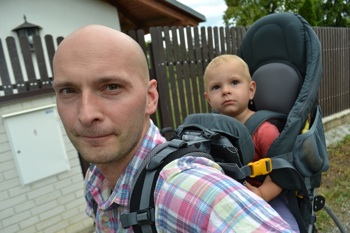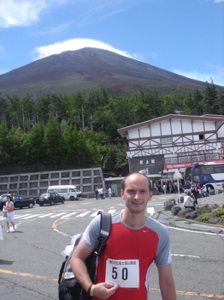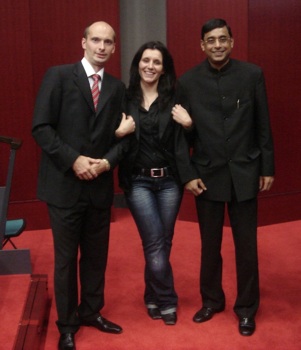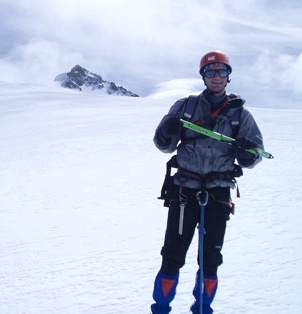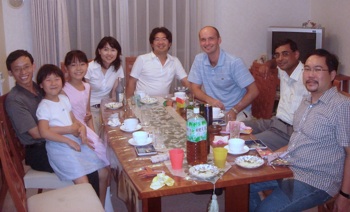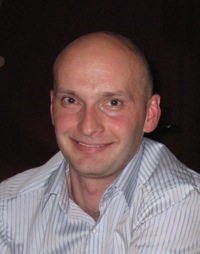 Roman Hvezda, Czech Republic
Roman Hvezda, Czech Republic
Executive Manager, ELI Beamlines Project
Institute of Physics, Academy of Science of the Czech Republic
Young Leaders Program (’06)
The Extreme Light Infrastructure (ELI) Project is a new pan-European scientific infrastructure in lasers’ field, dedicated to the investigation and applications of laser-matter interaction at the highest intensity level. ELI-Beamlines, located in the Czech Republic, is on of the three pillars of the ELI Project and will focus on creating a new generation of secondary sources for interdisciplinary applications in physics, medicine, biology and material sciences. As Executive Manager of the ELI-Beamlines, Roman Hvezda is responsible for the overall planning, risk management, financial and human resources, procurement, and the construction of the research campus.
Before taking up his current position in 2010, Roman worked for 7 years in the Ministry of Education, Youth and Sports. With an education background in engineering, he first worked as advisor to the First Deputy Minister, then as Director of the European Regional Development Fund (ERDF) Implementation Department, responsible for R&D and innovation-related projects. In 2007 Roman was appointed Director General in charge of overall educational and research policy coordination, and in 2009 he became Director General for EU Projects Coordination, responsible for the strategic management of more than 25 big reform projects (from 1 to 25 mil. EUR).
What is your area of specialization and how did you come to work in this area?
I started my career in 2002, at the development division in one of the Swiss leading companies in the field of hydraulic valves. Even though life in Switzerland was fantastic I felt an urge to foster my academic skills and so I returned to Prague to start my PhD at the Czech Technical University in Prague.
In the meantime, I received an offer to become a part-time advisor to the first Vice-Minister at the Ministry of Education, Youths and Sports. It was obviously a very challenging moment for me, but I took this opportunity as a chance to gain a unique experience and utilize my previous background in the field of policymaking. I had a chance to work with excellent people from various areas – economic, legal etc. – and adopted all required skills.
When the Czech Republic became a member of the European Union (EU) in 2004, it enabled us to focus on the process of targeting and utilization of EU structural funds. This was again an excellent opportunity to utilize and learn from the interaction between an environment of a new member state and ideas coming from traditional democratic countries. Especially for my area of interest I became fully absorbed in the emphasis on the innovation process, that combined all the educational system, research and fostering business innovations. I was appointed as Department Director responsible for implementation of the programme called Research and Development for Innovations with an ambition to enhance the infrastructural capability of Czech research institutions.
You are currently working in the Institute of Physics Academy of Science as Project Manager of the ELI Beamlines Project. Please tell us about the project and your main tasks and responsibilities?
The project Extreme Light Infrastructure (ELI) is part of a European plan to build a new generation of large research facilities selected by the European Strategy Forum for Research Infrastructures (ESFRI). ELI Beamlines is one of three pillars of the pan-European research infrastructure – the others being ELI Attosecond in Hungary and ELI Nuclear Physics in Romania – and is the most ambitious research project in the history of the Czech Republic.
ELI Beamlines will constitute a facility that will pioneer a number of fields of research using ultra-high intensity lasers; it represents a unique opportunity for the Czech Republic to host a major international research infrastructure. The main objectives of the ELI Beamlines Project include the construction of a modern, cutting-edge laser facility and realization of many research and application projects involving interaction of light with matter at intensities that are more than 100 times greater than the values achieved at present.
As project manager I am responsible for an appropriate management setting, project risks, financial issues, procurement processes and building construction. This involves negotiations of prospective contracts with leading companies and R&D institutions from around the world, including obviously Japan. Building upon existing know-how in the Institute of Physics, a new team has been put together to tackle this enormous task.
What are some of the biggest challenges you face in your work?
One of the great challenges we are facing is the strict time limitation set for realizing the whole research center. Due to financial regulations, construction of the Center should be finished by the end of 2015 and the facility should be operational from 2016 onwards. Realizing our goal requires synchronization of our excellent team, appropriate processes settings, strict quality control and countless hours of hard work. Moreover, as a prospective international research center we are open to people with diverse professions, experience and nationalities. Getting an appropriate mix suitable to the needs of the complex, multi-disciplinary nature of the project is another big challenge.
Before taking up your current job in 2010, you worked in the Ministry of Education, Youth and Sports for about 8 years, managing some challenging projects. Please tell us more about your experience in the Ministry.
Beside what I have already mentioned, I worked as Chief of the Cabinet of the Minister. This position is a lightning rod – thus not something one would dream about – but after 5 years at the Ministry I felt I had gained enough insight to see what changes were needed. That was also the time when the Czech Republic took the Presidency of the Council of the European Union, which rotates every six months between the member states. The Presidency is not only about receiving VIP visitors from all over the EU, but more immortally to be given an opportunity to be involved in coordinating common policies for the whole continent. This was naturally a very hectic period and led to missteps as well. Nevertheless, to be part of the top-level decision-making process pushes you to consider related responsibilities and it is a message I took from that.
What have been the most interesting or rewarding aspects of your career thus far?
The Czech Republic has gone through turbulent times caused by political changes or other aspects. These have brought uncertainty but also created lots of new opportunities. I am grateful that I was given a chance to enter new areas while working hard has always been an anchor that has brought me new and exciting job opportunities.
What led you to GRIPS? What is the most important thing you got out of your studies here, and how has your experience at GRIPS prepared you for future endeavors?
One day I simply received a flier presenting study opportunities at GRIPS. It sounded to me as a great idea from the very first moment. Opportunity to study in a challenging program, learning more about Japan, and meeting people from all around the world …..
I am still very thankful for all the formal and informal exchanges with people from India, Kazakhstan, China, Japan, Thailand, Australia etc. I like to tell a story about my first day at Roppongi Campus, looking at a world map that looked very strange to me. I was puzzled and couldn`t orient myself. The fact, that my standard perspective – Europe being at the very center – is just only the result of my educational and cultural determination and that even trivial things can be seen differently by other people had never occurred to me. In that sense, it was an eye-opener and broadening my horizon, meeting with people from a wide variety of backgrounds, and learning to see things from different perspectives is probably what I gained most from my stay in Japan.
What is your fondest memory of your time spent in Japan? And what do you miss most about Japan?
I obviously love to cast my mind back to the social events with my Young Leaders Program colleagues, our work on the GRIPS newsletter and the unforgettable GRIPS Oscar Ceremony, in which the whole class of 2006 was involved. I am definitely missing friends, the kindness of people and the flavor of Japanese food.
You just celebrated the birth of your second daughter. Congratulations! You must be very busy. How do you maintain a balance between your work and the rest of your life?
As for last months, there is no balance :-), but a lot of fun, indeed. I simply try to be organized and strictly follow the priorities. I have started to value time much more than before. I guess, with two daughters, the toughest times are yet to come.
What is your favourite thing to do when you are not working?
With two small daughters it is very easy to answer. I am still engaged in endurance running and mountain climbing but I have moved from the sport category to the tourist one. However, I still hope to join once again the Fuji Race, which was one of the craziest I have ever run.
What advice would you give to current GRIPS students?
Be active, use your chance to meet various people, professors and don`t come back without big suitcase of experiences.
Do you have any suggestions on how to further utilize the GRIPS alumni network?
Whenever I go abroad I try to contact people who studied at GRIPS. It is a nice way to meet people I have something in common with and the best source of information about places I want to explore.
Also thanks to great efforts of the GRIPS team we have a chance to be in touch by all possible means. I am sure everybody can find a way to benefit from it.





